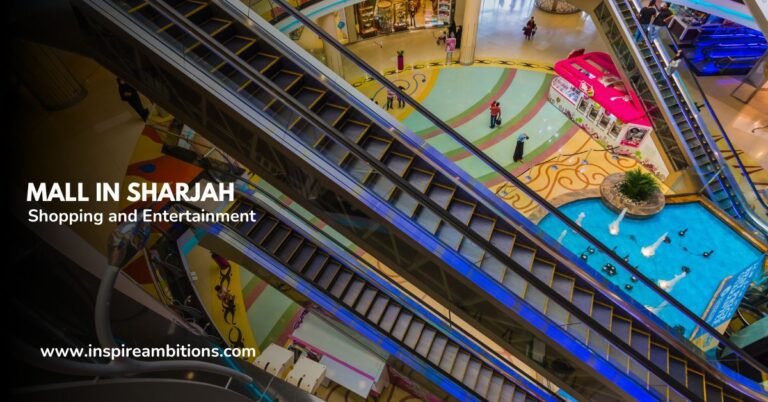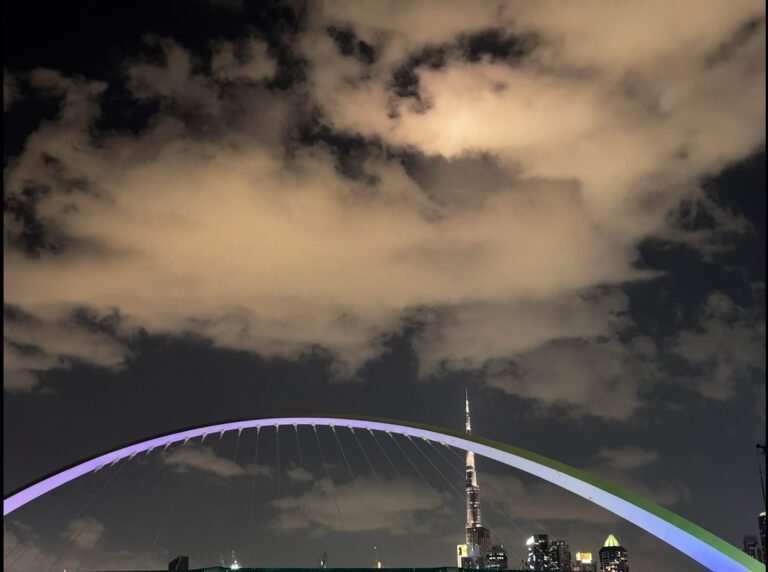Expat Life in Dubai – A Comprehensive Guide to Thriving in the UAE
Dubai, known for its towering skyline and luxurious lifestyle, has become a magnet for expatriates seeking opportunities and adventure in the United Arab Emirates. Transitioning to life in this fast-paced city requires understanding the essentials of expat living, from finding accommodation to immersing oneself in the local culture.
Your journey into the heart of the Middle East promises the excitement of a cosmopolitan hub and the challenge of adapting to a new way of life.
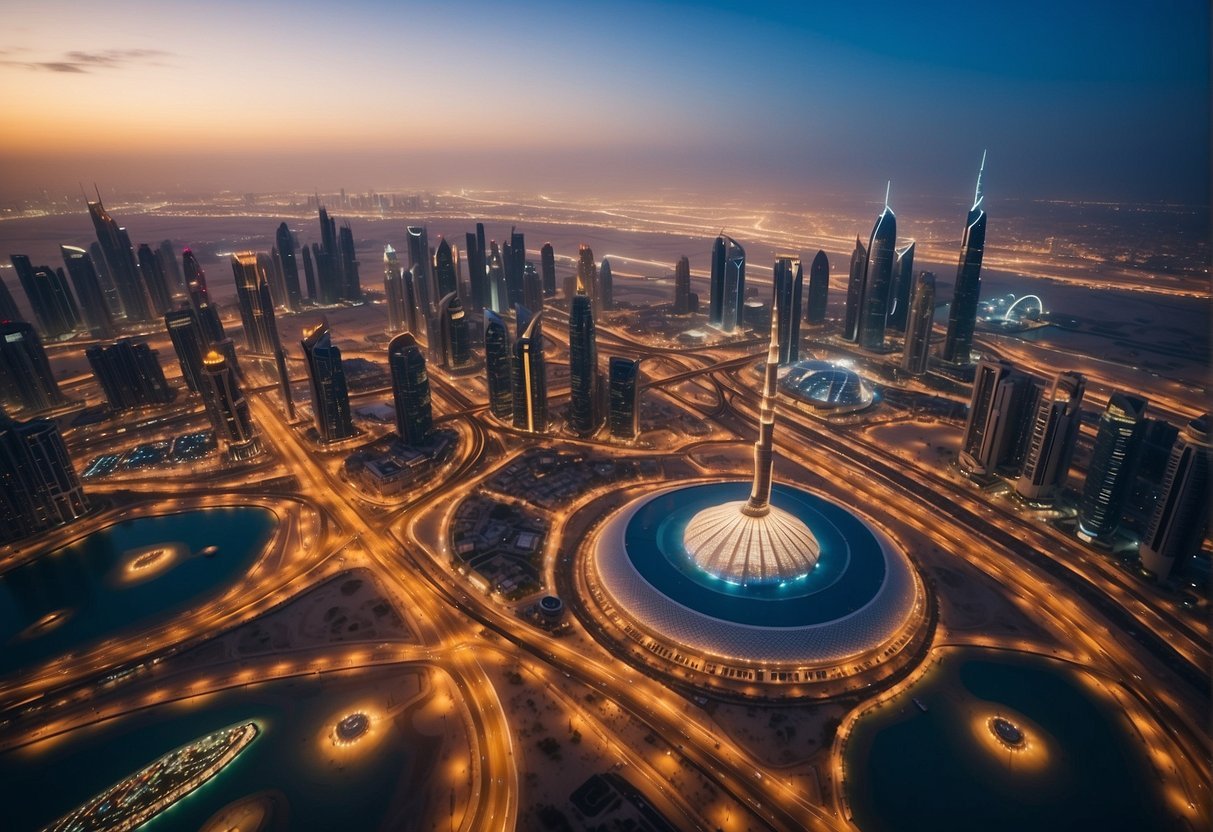
Navigating the employment landscape is crucial, as the city’s economic boom offers diverse prospects in various sectors.
Moreover, securing a comfortable home base is paramount, with numerous housing options to suit various preferences and budgets. Integrating into Dubai’s unique cultural mosaic is essential to your personal and professional life. Dubai’s high-quality infrastructure supports multiple needs, including reputable international schools and state-of-the-art healthcare facilities, ensuring a well-rounded life for expatriates.
Expat Life in Dubai – Key Takeaways
- Dubai presents a blend of business opportunities and a high standard of living for expats.
- Access to a variety of services and a robust healthcare system is available.
- Experiencing the city’s distinct culture positively impacts personal and professional growth.
A Comprehensive Guide to Expat Life in Dubai: Understanding the Basics
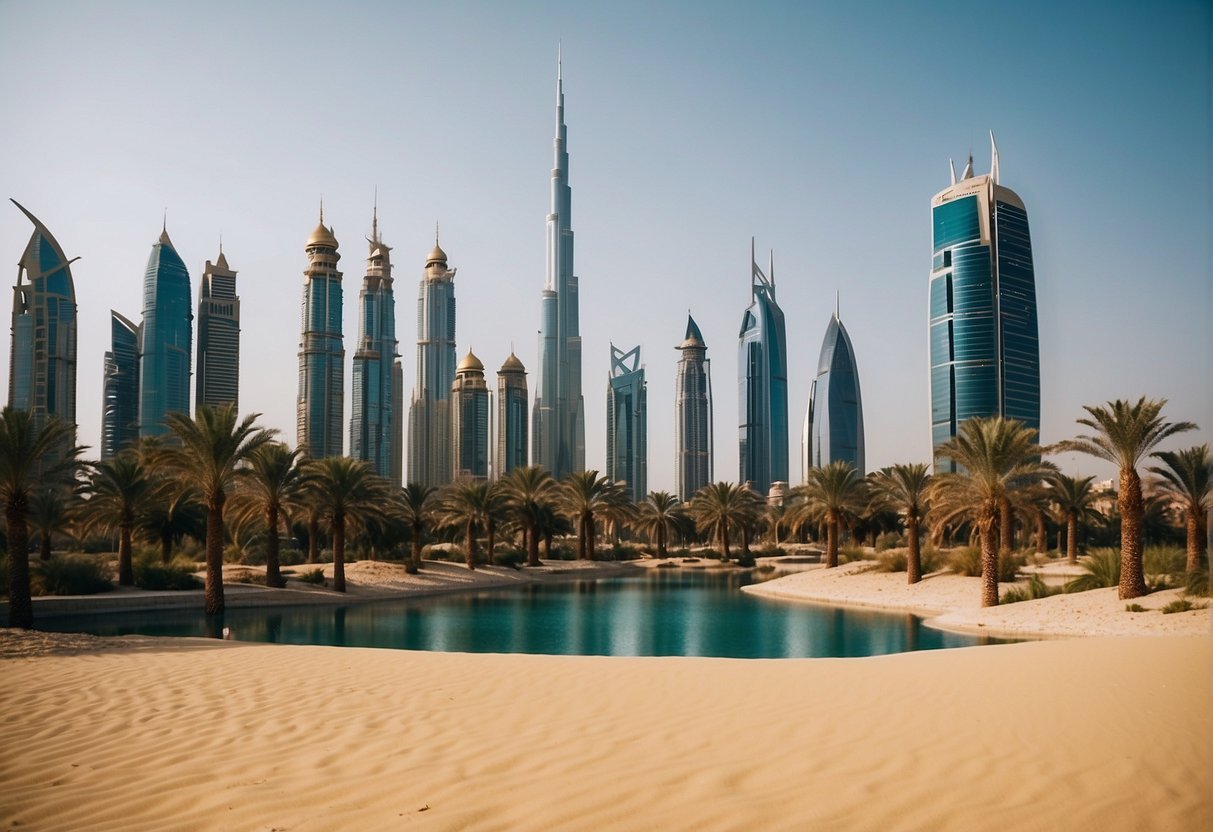
When considering a move to Dubai, understanding the essential elements of expat life, from the legalities of residency to navigating the bustling streets, is crucial for a seamless transition.
Residency and Visa Requirements
To reside in Dubai, you need a residence visa, which your employer can often sponsor—a necessity for legal employment and living. As an expatriate, it’s essential to ensure your visa status aligns with UAE immigration policies to avoid complications.
The Legal System and Local Laws
Upholding respect for Dubai’s laws, deeply rooted in Islamic principles, is paramount. Awareness of the local legal system, including strict conduct and dress code regulations, will help you adjust to life in Dubai without legal issues.
Population and Languages
Dubai’s population is predominantly expatriates, with English widely spoken alongside Arabic, the official language. Bridging language barriers is simpler in Dubai than in many other non-English-speaking countries.
Transportation Options
Dubai’s transport infrastructure is modern and efficient. The Dubai Metro is a rapid transit rail network complemented by extensive taxi services and a bus system, fulfilling varied transport needs throughout the city.
Housing and Accommodation in Dubai: Your Complete Guide
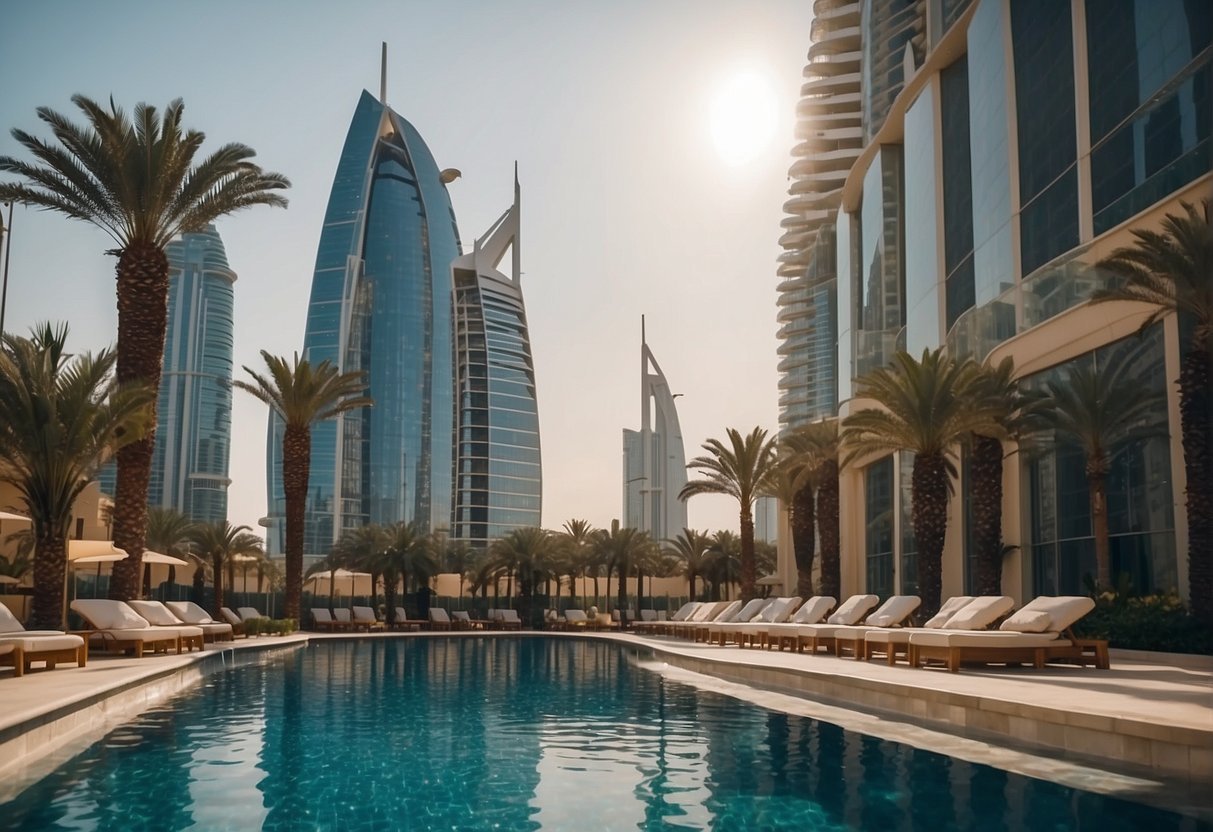
When relocating to Dubai, it’s essential to consider the implications of housing on your lifestyle and budget. Whether you opt for the flexibility of renting or investing in property, understanding the choices is key.
Renting vs. Buying Property
When you move to Dubai, you must decide whether renting or buying is best for your circumstances. Renting offers flexibility, while owning property is a long-term investment.
Renting:
- Contracts: Typically one-year, renewable leases.
- Cost: Requires a security deposit and sometimes several months’ rent upfront.
- Flexibility: Easier to move if your situation changes.
Buying:
- Investment: Potential for property value appreciation.
- Costs: Involves down payment, mortgage arrangements, and maintenance costs.
- Stability: Offers a permanent residence and more control over your environment.
Popular Neighborhoods and Areas
The choice of neighbourhood matters significantly when settling in Dubai. Whether you’re after the bustle of city life or the tranquillity of the suburbs, you’ll find a diverse range of options to suit your lifestyle.
- Downtown Dubai: The heart of the city, known for luxury apartments and high-end shopping.
- Marina: Popular among expats for its waterfront lifestyle and vibrant community.
- Jumeirah: Family-friendly with beaches and a more relaxed vibe.
- Al Barsha: Offers more affordable accommodation, suitable for budget-conscious expats.
Understanding Leases and Utilities
Before signing a lease, it’s essential to comprehend its terms and utilities costs, which can impact your monthly budget.
Lease Agreements:
- Must be registered with the Dubai Land Department for legal protection.
- Read carefully for any clauses regarding maintenance and who is responsible for repairs.
Utilities:
- Electricity and Water: Paid monthly, based on consumption; supplied by DEWA (Dubai Electricity and Water Authority).
- Internet/TV: Various providers offer packages; some buildings have pre-installed connections.
By understanding the complexities of renting, the benefits and responsibilities of buying property, identifying popular neighbourhoods, and fully grasping the ins and outs of leases and utilities, you’ll stand in good stead for making informed decisions about your new life in Dubai.
7 Essential Tips for Mastering Employment and Business Opportunities in Dubai
“Time is money,” and in no place does this ring truer than in the bustling metropolis of Dubai. This city is a playground for the ambitious, offering abundant employment and business opportunities.
Whether seeking corporate advancement, considering starting a venture, or navigating financial matters, Dubai provides a unique, tax-friendly environment where your diligence meets reward.
Finding Jobs and Work Culture
Dubai’s job market is vibrant. Business Bay is the heart of corporate Dubai, often compared to Manhattan in New York City. It’s where multinationals rub shoulders with flourishing startups. To land jobs here, focus on the technology, finance, and tourism sectors. The work culture emphasizes respect, with punctuality and professionalism at its core.
- Networking: Essential for job seekers.
- Qualifications: High standards for talent. Certifications and experience matter.
Lucrative career options await in Dubai for those with the right skill set.
Starting a Business in Dubai
Dubai welcomes entrepreneurs with open arms. Its strategic location makes it a gateway between East and West, offering unmatched access to global markets. Here’s how to kick-start your venture:
- Free Zones: Tax benefits, full ownership, and no currency restrictions.
- Mainland: Broader business opportunities with a requirement for a local sponsor.
Consider the startup ecosystem to support your business journey.
Taxation and Finance
Financially, Dubai is a haven with no income tax on individuals, making it an attractive destination for global talent. However, businesses should be aware of the corporate tax landscape. Here are critical financial points:
- No Personal Income Tax: Increase your savings potential.
- Corporate Tax: Competitive rates enhancing business viability.
For comprehensive understanding, taxation and finance advice is available to help optimize your fiscal strategy.
Unveiling Dubai: 5 Insights into the Expat Experience
Do as the Romans do in Rome—a saying that holds profoundly true for expatriates navigating the Life and Culture in Dubai. Understanding the local customs, relishing the vibrant entertainment, and savouring the diverse culinary delights can make your life in Dubai remarkable.
Social Customs and Dress Code
As an expat, you’ll find that respecting social customs and adhering to a modest dress code are essential facets of daily life in Dubai. Local culture expects attire to cover shoulders and knees, especially in public spaces and government buildings.
When it comes to the workplace, business attire is quite formal, with suits and ties often being the norm for men. At the same time, women are expected to dress conservatively, considering the emphasis on modesty.
Entertainment and Nightlife
Dubai’s nightlife is as dazzling as its skyline, with world-class clubs, bars, and lounges that welcome a cosmopolitan crowd. Whether you fancy high-energy dance floors or desire to relax at a rooftop bar, entertainment options are plenty and cater to various tastes. Amidst this, be mindful of local laws: public intoxication and drunk driving are severe offences, ensuring that night revelries remain safe and fun.
Food Scene and Local Cuisine
The food scene in Dubai is a paradise for food enthusiasts, showcasing a blend of traditional Arabic dishes and a variety of international cuisines. Relish the flavours of local dishes like shawarma, falafel, and the sumptuous Emirati cuisine at various eateries. The city has luxurious restaurants and charming cafés, offering experiences ranging from gourmet dining to casual coffee hangouts.
As you contemplate a move to Dubai, it’s crucial to be well-informed about the educational and healthcare landscape. Dubai offers world-class facilities in both sectors, with international schools following diverse curriculums and hospitals that provide high-quality medical care supported by comprehensive insurance systems.
International Schools
Choosing the right school is pivotal for your children’s academic success and personal growth. Dubai is known for its wide selection of international schools, many following the prestigious British education system. Each school offers a unique blend of curricular and extracurricular activities to foster holistic development.
- Curriculum: Most international schools in Dubai offer International Baccalaureate or national curriculums, such as the British, American, or Indian boards.
You can refer to in-depth discussions on pages like Global Citizen Solutions for more detailed comparisons of curricular offerings.
Healthcare System and Insurance
Dubai’s healthcare system is reputable for its high standards. All residents must have medical insurance, ensuring that healthcare services are accessible and affordable.
- Hospitals: From state-of-the-art facilities to professional medical staff, the hospitals in Dubai are equipped to handle various medical needs.
You can gain an understanding of the healthcare system and expatriate insurance requirements by reviewing guidance like the comprehensive guide available at Expat Arrivals.


